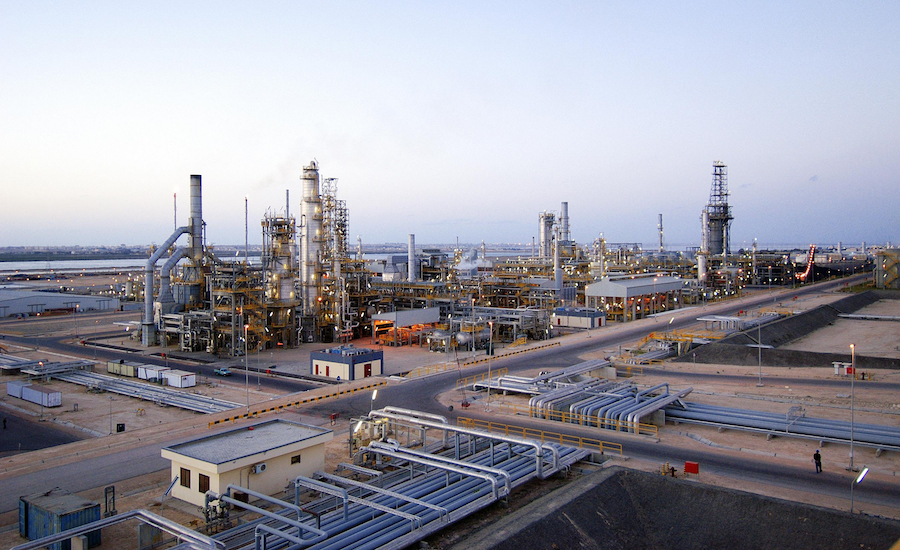French banks Credit Agricole and BNP Paribas as well as Italy's CDP have signed a $1.2-billion loan deal with Egypt's Middle East Oil Refinery Co. for the oil processing plant's expansion.
The financing is equivalent to 80% of the total cost of the project, which will increase the refinery’s processing capacity to 160,000 barrels per day (bpd) from the current 100,000 bpd.
The total $1.4-billion expansion project will allow the Alexandria-based Middle East Oil Refinery Co. (MIDOR) to increase its revenues by 30% while expanding annual butane-gas production to 245,000 tons, gasoline to 1.3 million tons, diesel to 3.2 million tons, coal to 570,000 tons and sulfur to 135,000 tons.
Expansion work includes installation of a new pre-flash tower for the existing crude-distillation unit, enabling the refinery to reduce the load on the atmospheric crude-distillation unit's furnace. MIDOR also says it is implementing a two-phase industrial water-retrieving project to save water for reuse at the refinery in a bid to achieve a zero-liquid discharge. The first phase of the project has been completed; phase two is ongoing and includes putting up a new treatment unit to allow water to be used in steam production.
MIDOR's distributed control system also will be upgraded, while the boiler chimneys will be under the purview of the Egyptian Environmental Affairs Agency, the state department charged with setting the standards and conditions for construction projects as well as the rates and proportions required for the permissible emission limits.
Italian project management, engineering and construction firm Technip last year was picked for the EPC phase of the MIDOR project, while UOP LLC, a unit of Honeywell International, will provide engineering designs and licensing. MIDOR has not confirmed when the expansion project will commence but initially had slated its completion for the first quarter of 2019.
MIDOR’s expansion is significant for Egypt’s refining capacity, currently estimated at between 704,000 bpd and 726,250 bpd but operating at 445,000 bpd. The low capacity level has been linked to the financial challenges facing the Egyptian General Petroleum Corp. (EGPC), the national oil company.
For a long time, EGPC has been unable to pay off the debts it owes international oil companies operating in Egypt. The corporation was forced to implement a new policy that allows the foreign oil companies to export crude from Egypt as payment for the outstanding debts, denying the North African country’s refineries substantial crude for processing.
The U.S. Energy Information Administration says Egypt’s refining output dropped by 28% between 2009 and 2013. The country in 2014 imported 145,000 bpd of petroleum products to meet the deficit.
The MIDOR expansion project is one of three that Egypt has planned as part of its strategy to boost the country's refining capacities. The Egyptian Refining Co. is developing a $3.7-billion, 85,000-bpd greenfield petroleum refinery under a public-private partnership, with financing from Egypt-based Africa and Middle East investment Qalaa Holdings, formerly Cital Capital and EGPC.
In 2010, EGPC signed a memorandum of understanding with a Chinese consortium for the development of 300,000-bpd refinery, but details are still vague.



Post a comment to this article
Report Abusive Comment